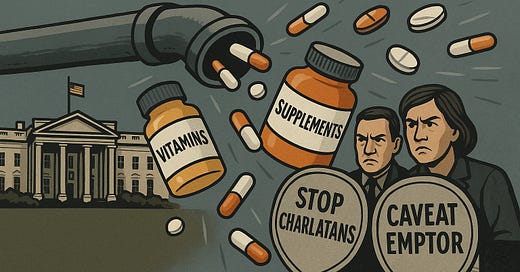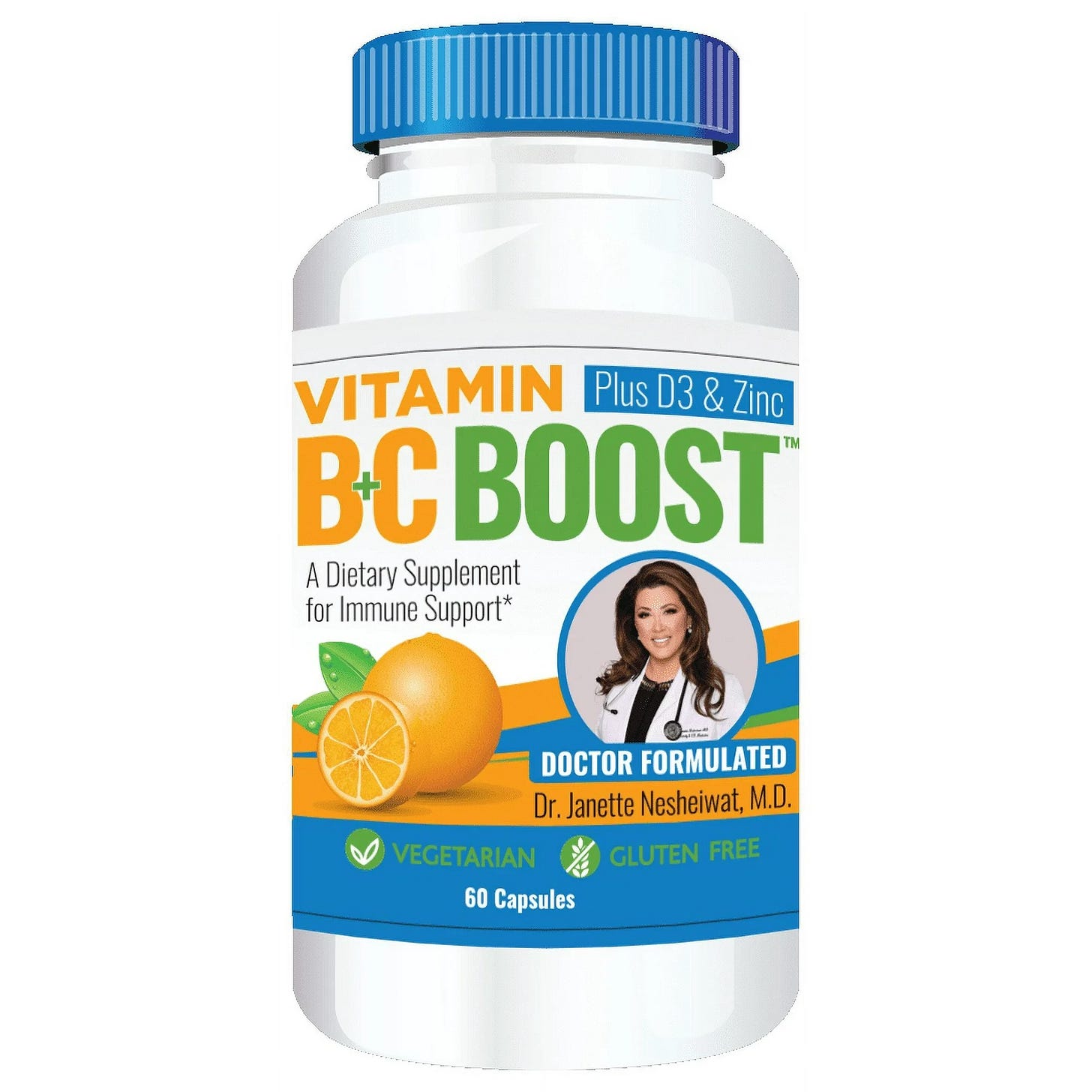Pipeline of supplements flows from federal health agencies
Long promotional track records of Kennedy, Oz, both Surgeon General nominees
There’s a history of non-evidence-based promotion of supplements coming from people who are now Trump administration federal health agency officials.
Back in March, KFF Health News reported on the lineup of Trump appointees or nominees for federal health agency positions who have a history of promoting or peddling supplements - RFK, Jr., Mehmet Oz, and Janette Nesheiwat (the first surgeon general nominee) - under this headline:
The story details how Kennedy has promoted supplements. During a couple of measles outbreaks, he touted cod liver oil as “almost miraculous,” along with vitamin A and chicken soup. And the story reminded readers of Oz’s promotion of “an alphabet soup” of vitamins to protect brains and other organs. Oz had been an adviser to one vitamin company and held a financial stake in that company. (An earlier New York Times story outlined Oz’s promotions of probiotics, fish oil, green coffee bean extract supplements and more.)
Nesheiwat, a former Fox News contributor, promoted BC Boost, a combination of vitamins “for immune support.” Bottles of the stuff credited her for its formulation, with a photo.
She didn’t last long before Trump withdrew her nomination after reports that she made false claims about her medical education, about her board certification, and about being commissioned as an army officer.
The Means’ metabolic health push
Shortly thereafter, Trump announced his next surgeon general nominee, Casey Means, whose financial and intellectual conflicts of interest I’ve written about previously. She has probably promoted more “wellness” products than anyone else in the administration, maybe even more than Dr. Oz. On her website prior to her nomination, she listed some of her “fave” supplements:
Her brother Calley has now been named as a “special government employee” for the Department of Health and Human Services under RFK, Jr.. He does this while still running a company called Truemed, which sells supplements, collagen peptides, beef organs and much more. The Associated Press recently reported on his financial conflicts, as “the co-founder of an online platform that offers dietary supplements, herbal remedies, exercise equipment, light therapy lamps and other wellness products.” The story included this quote:
“It reeks of hypocrisy,” said Dr. Reshma Ramachandran, a health researcher at Yale University. “In effect, he is representing another industry that is touting nonregulated products and using his platform within the government to financially benefit himself.”
Big Wellness
Fast forward to just last week, when STAT News offered an update on the pipeline of wellness promotion flowing from federal health agencies in the current Administration. (Most of the article is behind a paywall.)
The story shows how Kennedy is “giving Big Wellness a national stage, to the excitement of entrepreneurs and the consternation of some medical experts” who worry that “businesses looking to ride the MAHA wave to profits could lead Americans to expensive, ineffective products.” All with at least an implied - if not outright - federal seal of approval.
It’s created an uneven playing field. “As (Kennedy) demands more evidence from Big Pharma, he simultaneously wants to lower barriers for patient access to products that haven’t gone through the clinical trials and post-market safety monitoring required for FDA approval.” It’s more uneven when you try to examine the products’ evidence. As STAT reported, “it’s often difficult to show if the health interventions they sell work. Companies rarely publish their research in peer-reviewed journals, and independent researchers don’t have access to insurance claims data that can be used to interrogate a product’s value.”
STAT interviewed Pieter Cohen, an internist who leads the Supplement Research Program at the Cambridge Health Alliance. He made a troubling prediction:
“Lobbyists and business interests in all these different areas of health will have more and more leeway to practice and do whatever they choose to for at least the next four years,” said Cohen. “What is the way to protect consumers in that environment?”
Consumers are going to have to protect themselves. In a recent interview in which he said he wanted to expand access to experimental health products and procedures, Kennedy said:
“Of course you’re going to get a lot of charlatans, and you’re going to get people who have bad results. And ultimately, you can’t prevent that.”
So the secretary of the Department of Health & Human Services views charlatans as just part of daily life. Abdicating federal health agency regulation and oversight isn’t going to help. So far, the Trump administration has:
threatened to shut down the Consumer Financial Protection Bureau;
fired five commissioners from the Federal Trade Commission and the Consumer Product Safety Commission.
Caveat emptor.
(Additional note: Although not related to supplements, there are other conflicts in federal health agency appointments. Two newly appointed members of the Advisory Committee on Immunization Practices previously served as paid expert witnesses in vaccine-related legal cases.)










Yes-Casey Means will benefit professionally from the RFK, Jr HHS goal of “every American with a wearable in the next 4 years”.